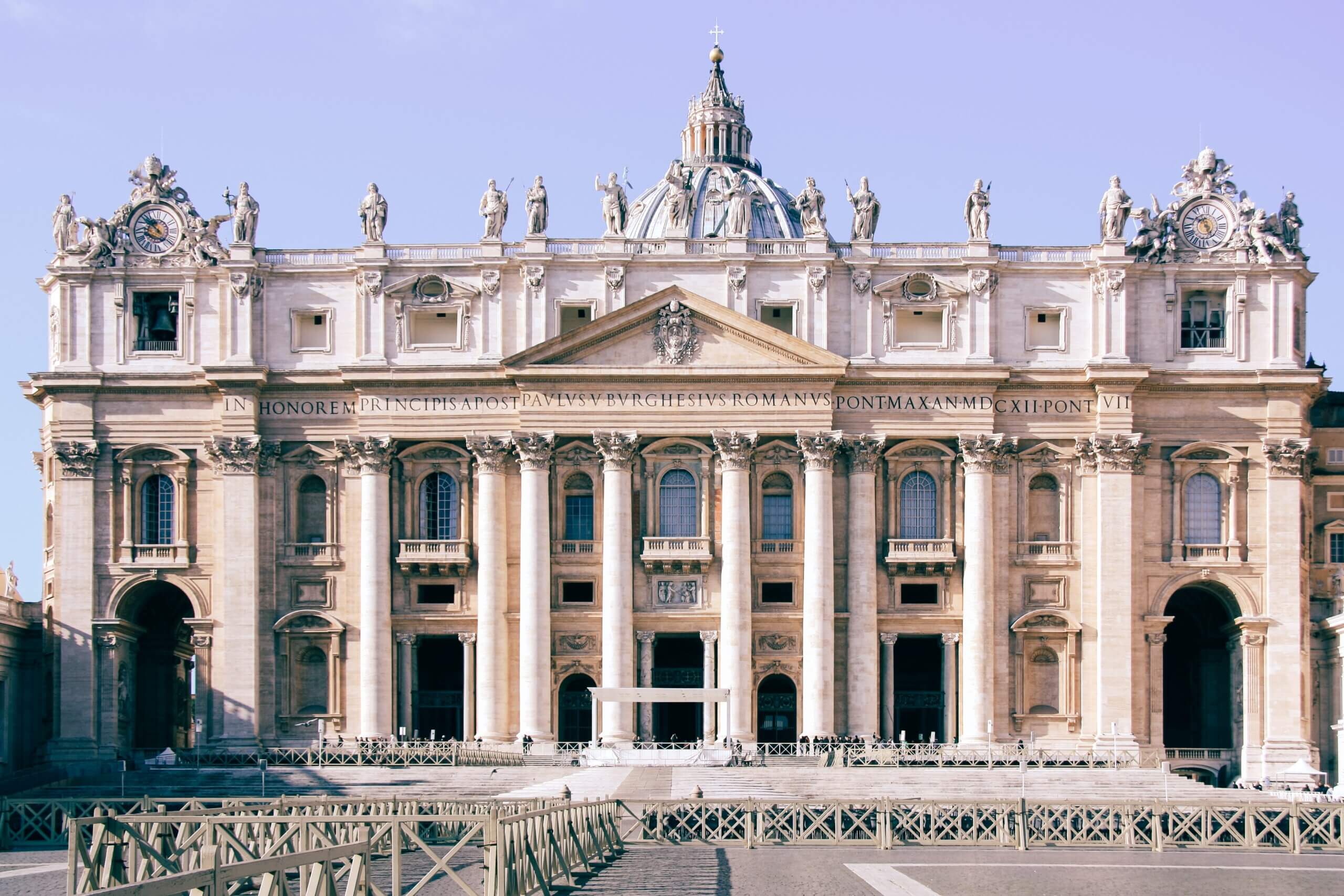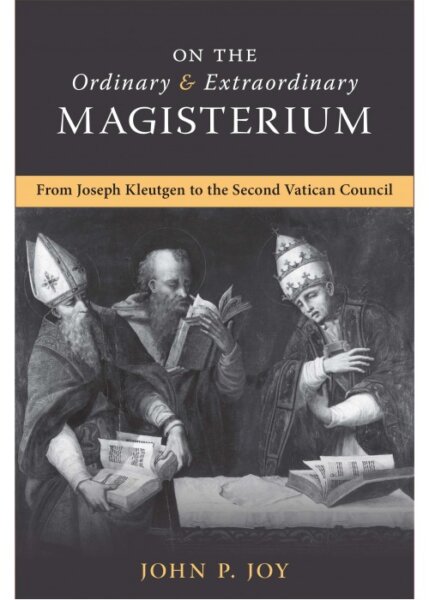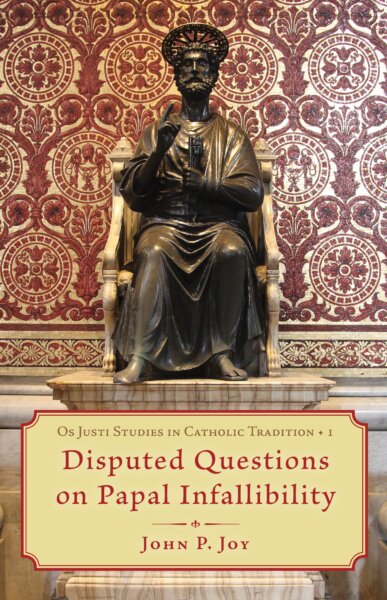The magisterium is a topic of great interest and grave importance for traditionalists today. The editorial stance that OnePeterFive has adopted, with which I am in full agreement, is one that strives to strike a balance between the excessive adulation of the magisterium typical of the hyperpapalists and the tendency to disparage the magisterium that unfortunately characterizes some of the more extreme traditionalists.
We need to be sufficiently well-versed in the traditional faith of the Church to recognize and resist when our shepherds would lead us astray from the rich pastures of true doctrine and right worship, but we also need to remember that submission to the hierarchical authority of the Church is itself an essential part of the traditional faith of the Church in which we rejoice to glory.
Yet the theology of the magisterium is an involved topic with many tangled threads. There are open questions that the Church has not definitively answered and that theologians disagree about, which can be very frustrating to a Catholic who wants clarity and certainty about what he is supposed to believe and accept in matters of religion.
As a Catholic theologian who loves our Lord Jesus Christ the King above all things, as one who is profoundly attached to the traditional liturgy as the form of worship most befitting his divine majesty, and as one who glories in the visible and authoritative nature of the Church which our Lord founded upon the Rock of St. Peter, my studies of the theology of the magisterium have helped me, by the grace of God, to have clarity of mind and peace of soul amidst the storm of doubt and confusion that whirls about us in the current ecclesiastical climate, even after Traditionis Custodes. God willing, I hope that I might be able to help others to obtain some additional measure of clarity and peace through a series of articles that will be something like a Magisterium 101 course for traditionalists.
Some of the topics I intend to cover include:
- the biblical foundations of the Catholic doctrine of the magisterium,
- the relationship of the magisterium to Scripture and Tradition,
- the authority of Ecumenical Councils,
- the authority of Vatican II in particular,
- the concept of the ordinary and universal magisterium of the Church,
- the conditions that must be met for popes to speak infallibly,
- the response that Catholics owe to non-infallible teaching,
- the scope of things the magisterium can teach about,
and a variety of disputed questions, such as
- the infallibility of canonizations of saints,
- whether popes can teach heresy in their authentic magisterium,
- whether Vatican II contains any infallible teaching, and
- whether Catholics can ever dissent from magisterial teaching.
If you want to get going on these topics and can’t wait, you can see the fullest treatment of most of these questions (with all the relevant citations!) in my two books here:
The Office of Teaching
As a first step, let’s start with some definitions. Nothing causes conversations about the magisterium to go off the rails faster or more frequently than ambiguity over the terms being used. We need to also be clear that this whole “theology of the magisterium” is a modern theological problem that only started to be discussed in the nineteenth century by popes, bishops and theologians, when the French revolution called into question the entire claim of the Church to speak the truth to souls and society. The magisterium itself has clarified many points of this theology, but other points are still not fully established, and this includes terminology itself.
Therefore, it is still common – even among official and/or academic theologians like myself – to encounter equivocation or even confusion regarding the terms we use to discuss this.
So, what do we mean by “Magisterium”? The word comes from the Latin “magister” which means “teacher.” “Magisterium” refers to the teaching office itself. It is the position occupied by the teacher with its attached obligations and authority. Catholics often refer to the pope and bishops as “the magisterium,” but this is a loose way of speaking. It would be more precise to say that the pope and the bishops are the teachers—the magistri—who exercise the magisterium, that is, the office of teaching, or who teach in an authoritative way in the Church.
This office of teaching is one of the three principal offices or tasks entrusted by Christ to the Church in order to carry forward his threefold mission as priest, prophet, and king:
- The prophetic office of teaching (also called the munus docendi in Latin) pertains to faith and morals;
- the kingly office of ruling (munus regendi) is related to the discipline and government of the Church; and
- the priestly office of sanctifying (munus sanctificandi) refers principally to her liturgical worship and the administration of the sacraments.
“Authentic Magisterium”
If “magisterium” refers to teaching authority in general, what do we mean by the term “authentic magisterium”? St. Thomas Aquinas distinguishes between a kind of magisterium exercised by the pastors of the Church and a kind of magisterium exercised by professors and teachers in an academic setting.[1] A teacher in an academic setting has a certain kind of authority acquired by his learning, but this is not such as to be able to demand that his students accept his teaching as true simply on the basis of his authority. But the pastors of the Church exercise an “authentic magisterium” (magisterium authenticum) rather than a merely academic magisterium. “Authentic” in this case does not mean “genuine” as it often does in English, but “authoritative.” The magisterium of the Church is called “authentic” or “authoritative” because those who exercise this magisterium are “authorized” to speak in the name of Christ and with his authority:
Among the principal duties of bishops the preaching of the Gospel occupies an eminent place. For bishops are preachers of the faith, who lead new disciples to Christ, and they are authentic teachers, that is, teachers endowed with the authority of Christ (doctores authentici seu auctoritate Christi praediti), who preach to the people committed to them the faith they must believe and put into practice, and by the light of the Holy Spirit illustrate that faith.[2]
An “authentic” magisterium is one that imposes an obligation of assent (i.e., agreement with what is taught): “In matters of faith and morals, the bishops speak in the name of Christ and the faithful are to accept their teaching and adhere to it with a religious assent (religioso obsequio).”[3] Whether there are any exceptions to this obligation is something we will investigate in a later article.
Infallibility
Finally, what about the term “infallibility”? In Catholic theology, “infallibility” refers to teaching of the highest grade of authority that is preserved from error or falsehood by an external assistance of the Holy Spirit. The concept of infallibility is easily confused with (but not the same as) inspiration. Inspiration is an action of God by which he moves men internally to speak or write (as genuine human agents and authors) whatever God wishes them to communicate, such that God is the primary author of their words. Infallibility, on the other hand, refers to an external assistance of God by which he guarantees that certain teachings, under certain conditions, are preserved from error or falsehood, yet in such a way that the human teachers remain the principal authors of any given text. In terms of their truth, both inspired and infallible teachings are inerrant—free of any error, but they differ in their formulation and the mode of divine assistance.
- Inspiration is a positive assistance whereby God moves the human agent to a positive execution of the divine will;
- infallibility is a negative protection whereby God merely prevents the human agent from committing the Church irrevocably to error.
[1] St. Thomas Aquinas, Quodlibetal Questions III, q. 4, a. 1, ad 3.
[2] Vatican II, Lumen Gentium, 25.
[3] Ibid: “fideles autem in sui Episcopi sententiam de fide et moribus nomine Christi prolatam concurrere, eique religioso animi obsequio adhaerere debent.”




